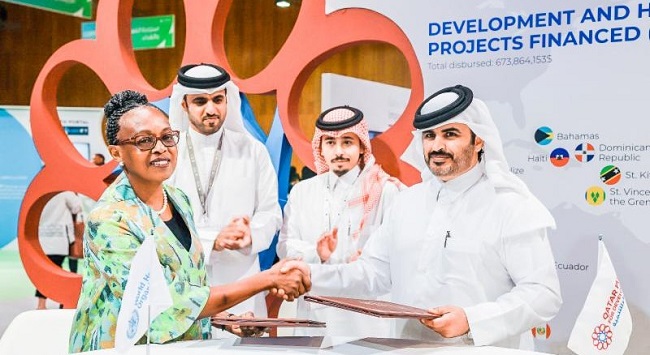During the World Summit for Innovation in Health Care (WISH), the Qatar Fund for Development (QFFD) signed an agreement with the World Health Organisation (WHO) Regional Office for Africa to support the Expanded Special Project for Elimination of Neglected Tropical Diseases (ESPEN).

Within the United Nations, the WHO directs international health and leads partners in global health response. The WHO addresses global health issues, designs health research, sets norms and standards, clarifies evidence-based policy options, provides technical support to countries in need and monitors and assesses health trends.
Through the agreement, QFFD will contribute $3 million, between 2018 and 2020, to the global fight for the elimination of neglected tropical diseases that are still rampant in sub-Saharan Africa. By supporting ESPEN, which aims to achieve 100% geographic coverage of preventive treatment across all endemic countries in the region by 2020, QFFD will help African countries to accelerate control and eliminate these NTDs, and thus contribute to poverty alleviation, improved economic productivity and quality of life for affected people in Africa.
“The Qatar Fund for Development considers healthcare as one of the highest priority sectors, being part of the Sustainable Development Goals notably the third goal to ensure healthy lives and well-being for everyone. More than 70% of countries and territories that report the presence of NTDs are low income or lower-middle income economies. Therefore, this kind of project aligns with the State of Qatar’s goal to help those in need around the world,” said Mr. Misfer Hamad Al-Shahwani, Deputy Director General for Development Projects, QFFD.
While signing the grant agreement, the WHO Regional Director for Africa, Dr. Matshidiso Moeti, expressed her gratitude to the Qatar Fund for Development for the donation and commended its vision of helping those in need.
“I am delighted that the Qatar Fund for Development has joined the community of partners that are working together to break the chain of poverty and misery caused by these NTDs,” said the WHO Regional Director for Africa.
ESPEN focuses on a data-driven approach to inform evidence-based action aimed at accelerating elimination. With country ownership and leadership as a guiding principle, ESPEN contri¬butes to the broader WHO target of universal health coverage, long-term sustainability and health system strengthening. Working with Ministries of Health, ESPEN strengthens the last mile of the supply chain to ensure high quality donated drugs are utilized and tracked appropriately, while promoting continuous innovation, development and adaptation, which are required to ensure accelerate sustainable country progress.
